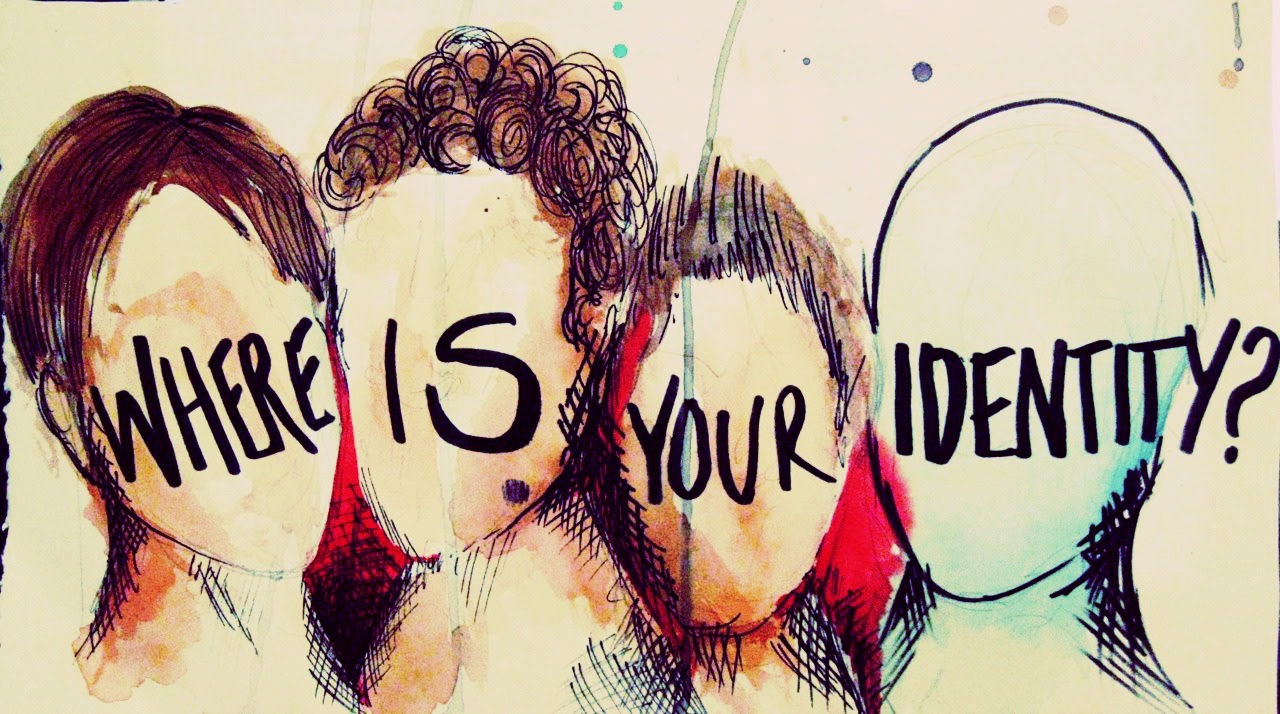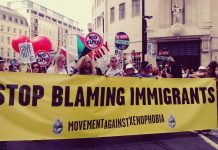Having been born and raised in the UK, whilst ascribed an ethnic minority status from birth, I discovered that identities are complicated things. Being ascribed a group identity is one thing, but not feeling part of it is another thing altogether. We can have multiple identities, belonging to multiple groups, with our legs and arms in different camps.
Experts have converged on these discussions through decades of research; anthropologists and linguists look at identities from one perspective, historians look at it from another perspective, social psychologists and sociologists offer their own observations on group behaviour. They all agree that the absence of a sense of belonging to a group is a bad thing, it can result in a sense of loss and alienation; sociologists talk of marginalisation and structural discrimination, which opens up another can of worms.
My readers may not be familiar with this discourse and its corresponding lexicon, or how to understand the psychology of group belonging. But they know the feelings and emotions I’m speaking of, even if they can’t explain what’s happening to them. Libraries exist on the phenomenon of belonging and its sense of absence, which can create profound turmoil in individuals and larger collectives. We are told that feelings of belonging are intimately tied with a sense of wellbeing – an interesting concept if you think about it. The absence of wellbeing can create a dysfunctional person, who may have no sense of responsibility to his peers or locality. Because he feels like he doesn’t fit in (because no one cares about him), he convinces himself that he is not accountable to anyone. No matter how good people are to him, and whatever the fortunes smiling down on him, he believes the system is rigged. He begins to behave according to his own ambivalent moral standards, feeling aggrieved and “othered” – a social process.
These are the sorts of explanations given whenever we try to understand the behaviour of crazed lunatics motivated by violent ideologies! It’s almost a given that they’re going to be presented as ‘belonging‘ to a ‘dispossessed fringe‘ of a ‘minority culture‘ (sub-culture) at odds with the dominant ‘mainstream‘, the respectable social group. These are buzz words that are used by lots of people, some will even use the term nihilism – another interesting concept.
It’s one thing to say you belong to a particular identity, and it’s another thing to actually feel it in the bones of your body. If you have people reminding you, for instance, that you’re not really what you claim to be, it’s pointless investing emotionally in the ‘identity’ you otherwise would have taken for granted, even if you genuinely do identify with the corresponding label.
I’m speaking of imaginary group-identities and the lack of reciprocation; experts use terms like ‘in-group’ and ‘out-group’; the dominant group and the fringe group; minorities, majorities – the mainstream etc. There are of course cleavages, fractures and fissures within every group, big or small.
In our modern age of reason, individuals are not doormats to be given the privilege of belonging, so that some of their peers feel empowered, whilst others feel a sense of acute ambivalence, loss and seperateness. In this power-relationship, the one can claim an authenticity of identity. It’s simply taken for granted by peers, whilst the “others” (having been “othered“) are seen as ‘counterfeit’, ‘inauthentic’, existing on the fringe of an authentic core.
What kind of ‘identity’ is that?
Why would anyone in their right mind want to belong to such an unequal power relationship?
What you should know is that ideas behind group identities aren’t cracked up to be what most people think they are. You’ll hear people say, “don’t attack my identity”, by virtue of the illusory associations they make with fictitious notions of “the group”, taking deep umbrage at what others say about their collective identity as if ‘they’ – the individuals – are being personally attacked. If you asked them to tell you something about their group, something substantive, historical, anthropological, ideological (if the group is rooted in an abstract idea), other than obvious stereotypes we take for granted, they probably couldn’t tell you anything. Yet they confuse their ‘imagined’ identity, their modern-day mask with some collective past, profoundly-felt personal memories and projected ancestral roots connecting them with present moments and future outcomes. Expectedly, they wouldn’t have any inkling to realise how far-fetched some of their ideas are; when probed they fall apart, becoming reactive, at times, belligerently!
FACT NO 1. Group identities are fictions
Writers and experts, who daily walk the terrain of identities are not sure about what exactly constitutes a group identity, even those who are authorities in the field ritually confess their inability to offer definitive answers. The introductions to their books are filled with caveats. But they still try. At its most basic core is the idea that identities are about ‘identification’, the subtle distinction is by no means slight. Identities are about ‘identifying’ with something, and that ‘thing’ says something about you. It doesn’t mean that the thing in question is ‘real’, or in the manner you ‘imagine’ it to be true, but that you feel it, as do others, and you get something from it, this aspect of group belonging is called ‘wellbeing’.
How we would expand on this insight is again open to incredible debate and discussion, fraught with all sorts of conceptual and analytical difficulties. Without trying to make a leap from issues of group identity to unjust social relations and mental health for individuals, our past can reveal a lot about our modern-day anxieties around corresponding cleavages. In the olden days, one kind of relationship made sense, from which we extract the seeds of our modern ‘nation-state’ identities, and that was the patronage network.
In western Europe – there are parallels elsewhere – the feudal lord, owed his graces and noble airs because of the wealth he acquired through his connection with the King – ‘top dog’ from a power-dynamic perspective. The Sovereign was the personal embodiment of the power structure, and the territory he ruled was ‘imagined’ and ‘described’ through the accoutrements of symbols associated with his person (lineage, group), courtly traditions and origin myths. A lot of the flags of European and non-European countries take us back to this past. To say that you ‘belonged’ to this network made sense because you had material proof of the connection. Wealth wasn’t merely handed out to anyone, your titles of rank and ‘pedigree’ connected you with the power-structure, an essential ingredient to the ‘identity’ you embodied. At the heart of this system of relations was injustice and inequality.
But there was also reciprocation for the elite (the highest class in society), a very interesting concept when it comes to issues of ‘wellbeing’ and ‘belonging’. You fought on behalf of the King because you got something back in return. The King ennobled you with land and titles because you had his back. In other words, you were identifying with a political and social order in which you had your stake and ‘status’. Astute and shrewd Kings knew that ‘power’ could never be absolute, so they would tread carefully. Power-hungry Kings, usually narcissistic despots, frequently lost their heads jeopardising the succession of their rule. But, the trade-off for both parties was worth it. Even when a feudatory felt humiliated or slighted by his ‘Superior’ – the overlord, he got over it and moved on.
Today, as political territories have given way to nation states, evolving from tribes and monarchies to states built on the flimsy idea of ‘nationhood’, the older sense of belonging as given way to all manner of illusory and nonsensical ideas around race, ethnicity, language, culture, class etc. Even those who feel they ‘belong’ to a particular status quo, have nothing to show for it, their ‘wellbeing’ being illusory.
I would describe it like this to use an illustration readily familiar to “ethnics” because of our lived experiences in the UK, although members of Britain’s indigenous white communities would readily understand what I’m saying. We’ve all heard the racial slur – ‘coconut’? If you haven’t, this is a word thrown around by those who don’t feel like they fit in mainstream society, quick to call their ‘ethnic’ peers coconuts; the crude insinuation is clear. The coconut has given up something authentic to become inauthentic; he may be behave like “a white person” – another fasionable slur on social media, but underneath he’s still brown or black, or from an immigrant background. The projected insinuation is clear, he’ll never be accepted by the host community, alienating himself from the group he originally came from. This is an example of a primordial identity, or the idea that identities never change, and are fixed in time.
Documented history tells us something very different. All identities are malleable. They absolutely change over time.
The coconut says he’s ‘English’ because he was born in England, using geographical ascription as the basis of his identiy. Now, on account of being born in England, he thinks he has a stake in that ‘identity’ not least because he lives and breathes the corresponding culture whatever its related ambiguities – this is what is meant by the term ethnicity, which is something very different to the illusory idea of ancestry. He visibly partakes in that culture; (ethnicity is the politicisation of the group idea around culture). He may even become a parody of himself, behaving unnaturally, perhaps over-compensating to ‘belong’ to demonstrate to his ‘new peers’ that he really is one of ‘them’. But a native and indigenous contemporary retorts, flippantly, “you’re not really English – used interchangeably with British – cus your parents weren’t from Britain, right!”
FACT 2. Fictitious group identities still require reciprocation
‘Belonging’ is based on the acceptance of the group, from which you accrue some wellbeing. On this occasion, it is rejected by one person totally invested in his own credentials as a true Brit. An impressionable person would think it’s really about deep ancestry, ‘blood and bones’, ‘sons of the soil’ sort of thing, but these are origin myths voiced by individuals who don’t understand the illusory nature of such debunked claims. The idea of race was debunked in the 1920s by American biologists and intellectuals from the Chicago School, who revolutionised ideas in social theory. It beggers belief that we still have people speaking about ethnic and linguistic identities in racial terms.
Think of it like this.
If the German-descended English-British Royal Family of Norman descent are not ‘English’, symbolically intertwined with the image of Great Britain, – “God save the Queen”, “fight for your King, fight for your country” and all that patriotic nationalism, then no one is English. This would hold true for entire swathes of England, from Irish-descended Englishmen, possibly just under half the current English population to French-fleeing Huguenots and a host of other descendents of ‘Norman’ and Viking heritage. One of Princess Diana’s direct maternal ancestor was an Indian. England is named after the Angles, and the Norman conquerers weren’t exactly linear descedendants of this old tribe. They fought against the Angles and took the land from them, they too, like the Angles, were foreigners to Britain becoming native or indigenised gradually!
Some of the most celebrated Englishmen and women of English history have traceable roots outside these Isles, and they weren’t linear descendants of Germanic speaking Angles (old English speakers) or Romance speaking Normans (old French speakers).
But there is a wider point.
If the person claiming this sort of authenticity of identity (the real native in his own mind) has nothing to show for his own genuine British-credentials, you would be forced to ask, what exactly is he identifying with? What kind of identity is he embodying and pursuing? Is he striving to celebrate the ‘wellbeing’ of native peers who live separately from him? These are the same people who wouldn’t spare a thought for him. ‘Social class’ (not just race) is a big problem in many parts of the world, and not just the UK. Classism frequently gets conflated with illusory ideas around race, ethnicity and ancestry (lineage). In Britain today, there are social commentators writing about the misdemeanours of an English ‘underclass’, using pejorative language from across the Anglosphere to describe them. They use terms like ‘Chavs’, ‘White-trash’, ‘Inbreds’, ‘Red-necks’, ‘Trailer Trash’ etc. These are very offensive and cruel terms, but the protagonists are never accused of being racist, becase the idea of class is less toxic than the idea of race. It’s still acceptable to be classist in the UK, and lots of ethnic minority “racists” operate under the cover of class.
There is a history here I won’t bore you with, but it’s about how the poor were identified by their upwardly-mobile peers, many of whom were of humble backgrounds themselves, usually having come from dispossessed and marginalised groups. People everywhere over-compensate to be ‘accepted’ by their new-peers denying their former lives, and distancing themselves from their older-peers. A lot of prejudice is rooted in self-hatred, which is then projected onto others through the construction of illusory group identities.
Aristocrats do not fit this mould, there is a particular psychology here. Those historically connected with patronage-networks are generally more secure about themselves. They rarely notice those beneath them in social status terms, because there’s no corresponding anxiety to distance themselves from people who remind them of their actual past. Aristocrats don’t need to prove who they are, even if they fall on hard times, generations removed from the older gentry. They don’t need to invent or adopt new surnames. Anyone who matters within the established dynamics of a social order knows who they are. I’m not saying they are ‘virtuous’ when it comes to issues of social relations – they can still be bigoted, racist and classist, but they don’t feel the urge to change their accents, or dress a particular way to prove a certain status. In extreme cases, some people obsessing about their social status (classism) dump their childhood friends, and even family members, because they’re a powerful reminder of where they originally came from.
These sorts of anxieties have nothing to do with the actual identities of ethnic or racial groups, but about a social pecking order. This is about internal fault-lines; like I said, people extricating themselves from their former lives, who obsess about social status, usually go on to hate others who remind them of where they originate from, usually less-threatening. For those who started their social evolution from the bottom of a social pecking order, they start to hate ‘immigrants’ even if their own parents and grandparents were immigrants. They hate the new-comers – the refugees, the asylum seekers, because fringe groups are convenient targets who don’t have powerful inidviduals protecting them from the mainstream, until some sections of the fringe community enter the governing-class. This mindset has nothing to do with colonial Britain’s psuedo race-science. There’s a particular social psychology here.
And, so in the case of our authentic Briton in the above scenario, ‘British by blood and soil’, he is a deluded person, who makes promordial claims stripped of their corresponding social value, something we are now seeing in the backlash of people speaking about the ‘Great Replacement’! Liberals have not helped given their own social class prejudices against the white working class, the more horrible characterisations of this illusory identity morph with demeaning ideas around the benefit class. I surmise that lots of contemporary liberals were never liberals in the first place (in terms of actual European enlightenment values). Liberalism has became a convenient identity for lots of people, because it has become associated with the dominant group in Europe and North America; a metropolitan elite that is being increasingly demonised by those pushing nativist ideas around group identities. If one looks at the writings of any number of liberal journalists, subtle prejudice intersperses their pages; these people would not be considered liberals by those who first espoused the ideas of liberalism, ideological pioneers associated with the canon of liberal literature.
Fact 3. Identities are ‘us’; genuine reciprication does not need a ‘them’
‘We’ are the identities. That’s how functioning group identities are first encountered, and then ‘imagined’ later with the accoutrement of symbols, rituals and origin myths. This “we” does not presuppose a “them” to accrue wellbeing, that’s the point I’m making. It only needs genuine reciprocation on the part of its members.
The hypothetical ‘Englishman’ in the example above – the nativist ‘Briton’ whom I’ve problematised for illustration purposes offers literally nothing to his ‘race’ – his ‘nation’, ‘ethnicity’, the primordial group – all buzz words for some deep ancestral authenticity greatly imagined. To be really crude and prejudicial to him, taking cues from some journalistic narratives, he lives off the ‘State’ – i.e., ‘taxpayers’ (note, how we construct false identities when it suits us), many of whom are foreign-born, because he doesn’t feel the need to work, or doesn’t have the right skills. He doesn’t contribute anything to his native-born society. In the extreme case, he’s a lout, and an inconsiderate one too, dropping litter everywhere he goes to use negative stereotypes recycled by the mainstream media, mindful of the anxieties I’ve already mentioned – “he is a Chav!” They’ll even use greatly-amplified images of young men minding their own business, hanging out in their own circles, plucked from some unassuming street in the North, wearing tracksuits and caps to make the image stick in your head.
Gutter journalism is not merely a problem for immigrants, but for all people existing on the fringe of an unjust and unequal power structure. It is an outlet for deep-seated anxieties to sell papers to people who can ritually consume newer notions of group belonging – an inclusive kind of social prejudice based on social class sensibilities that demonise the white working class, the newest incarnation of the popular villain. There are consequences to this demonisation; Trump, Brexit and the resurgence of the Far Right in Europe are good examples. This movement has been gaining momentum for some years now, it has yet to reach apex.
So, should group identities be simply about belonging or some social function?
Take the example of the naturalised Englishman, the ‘lessor-Briton’ of immigrant extraction. He is accused of being ‘fake’ by the in-group and a coconut by the out-group. Let’s say the ‘coconut’ is a surgeon or epidemiologist. He performs life-saving operations daily, paying considerable taxes and actually contributing to our understanding of disease control and its cures. Yet he is not English or British ‘enough’ because he or s he, (to not discriminate on the basis of gender), is ‘brown’ or ‘black’ or ‘Eastern European’ – to use a frame of reference we instantly recognise.
What kind of group ‘identity’ is that, if the person in question is seen as a primordial outsider to the group? If this person is merely tolerated by virtue of all the social good he or she does, or expected to do, why would anyone else, newcomers from other parts of the world, want to ‘belong’ to an English or British nation because of the group’s celebrated accomplishments? Why, when there is an infraction on the part of his immigrant peers, does he conveniently become a ‘target’?
This trade-off would be an unfair one, except for the fact that we can recognise certain benefits, tangible benefits that come from living in the UK.

It’s no longer about wanting to belong to a superior group howsoever that is imagined, but about real tangible outcomes that enrich people as a result of joining that group. We can even turn this proposition on its head. Choosing ‘sides’ with a ‘group’ that accepts you superficially; “group” here is code for an imaginary identity, isn’t a sufficiently good enough reason when members of that group are incapable, or reluctant to offer you anything of value. It is for this reason that group identities are a lot more complicated than simply feeling the need to belong to a ‘nation’, ‘territory’ or ‘locality’; feelings of wellbeing must be accompanied with tangible economic and social benefits.
Natives and foreigners; the “in-group” and outsiders
Let’s look at the experiences of ‘immigrant communities’, 3 and 4 generations removed from the original pioneers. Most of them feel ‘British’. If they be honest with themselves, they dont really feel like they belong elsewhere except when they’re made to feel like they don’t belong here. In the ‘British’ ‘South-Asian’ community – (note, we need to be careful with this particular term) – they tend never to use the term ‘English’ but ‘British’ despite overwhelmingly having been born in England. They have little to no ties with the other constituent countries of the UK, withstanding ethnics outside England. There are certain racial undertones to the idea of being English that doesn’t necessarily correspond with the British equivalence which I need not get into here. But the point nonetheless remains.
So, why do they still feel ‘British’ if they’re reluctant to say they’re ‘English? How can anyone be British whilst discounting the constituent parts of that identity? Before you can become British – (note, Britan doesn’t have an Empire anymore), you have to first be English, Welsh, Scottish or Northern Irish, that’s how the modern British identity works, minus anomalies like Gibraltor or the Falkland Islands, because of the old imperial connections.
The answer is simple.
They get something in return from the society they live in – England, and not just Britain, and not so much from the racists who say, “you’re not English, because you come from somewhere else!” Britain is a wonderful place to live whatever the presence of racists and those pandering to them as a means of mobilising votes, or getting ‘noticed’ in the rightwing media; populism is a problem everywhere. If I’m permitted to say, ‘shitty’ people live everywhere; my apologies to the word-police – I’m also fed up with political correctness that masks social class prejudice through liberal masks outraged by racialists, Fascists and Nazis. Some racists do use incendiary and inflammatory language to express their hatred for the ‘imposters’ and the ‘newcomers’; polite society looks away, disgusted but perhaps not necessarily that offended, because they have no skin in the game. They’re not being impacted by the demonisation campaigns.
Hidden ‘racists’ who present more positively, come across more reasonable – balanced, the sophisticated social commentators or experts that fret about impending doom. They get airtime and column spaces, because they know how to navigate polite society. A lot of what they say is based on subtle prejudice and bias, and they may not even be aware of their own anxieties’ it’s usually people who are insecure in their own ‘cherished’ personas that want to challenge others that pose ‘new dangers’ to the thing that needs protecting – national culture and heritage, “the old ways”.
This happens everywhere, and by far Britain has less of these perceived dangers. There seems to be less of these ‘personalities’ in the UK than elsewhere. Think of Eastern Europeans complaining about Britain becoming less-welcoming – our new foreigners. My apologies for lumping diverse peoples into one ‘illusory group’. If you were a ‘black’ guy from the UK, do you think people would treat you better in ’EU’ Hungary, with all its fanfare about keeping ‘Europe’ ‘Christian’ and ‘white’, whilst protecting the EU’s borders?
We’ve seen how the Roma get treated in a lot of these sorts of countries. How many of us can forget that image of the camerawoman tripping a defenceless little Syrian refugee boy whose family were merely transiting through Hungary on their way to Germany!? Which Syrian Refugee, having plucked up the courage to flee his native land, having sold all his prized possessions, or having lost everything, opt for a country like ‘Hungary’, were you see images of journalists spiting the fortunes of little children because they belong to the wrong ‘group identity’?
Some of these ‘European’ nationals think because their ‘white’, ‘European’ and ‘Christian’, they should have preferential treatment over the ‘lessor Britons’ of yesteryears, even as some of our ambiguous-looking Britons want to tell them, “can you please get in line; we ‘Britons’ form excellent queues“! For some of these ‘newcomers’ ‘freedom of movement’ means ‘Europeans’ like them moving across borders, and they don’t necessarily include non-European, non-white people, in that definition. Mr James White, from Bolton is welcome in Hungary, but I doubt Ranjeet Singh from Southall would get the same warm reception.
Of course, not all Hungarians are racist or xenophobic. The majority would feed you if you knocked on their door dying from the pangs of hunger and thirst. The overwhelming majority of people, wherever they are in the world are good people, it’s just the impressionable amongst us get manipulated by sinister forces selling them ‘impeding doom’ stories. Positive vibes aside, there’s a lot more ‘visible’ racists outside Britain than inside it not least because of Britain’s colonial heritage and global reach, and the ongoing struggle of ordinary white folk to fix things – we used to call these people, liberals! Today, liberalism has become a dirty word in the unlikeliest of places. We have social media to blame for that and authoritarian regimes behind all manner of conspiracy theories and disinformation.
But you should now understand the wider point about group identity, belonging and actual outcomes in terms of lived experiences. Feeling that you don’t belong somewhere is not the same thing as not accruing tangible opportunities – a mutual exchange for those offering opportunities and those partaking in them. It’s a two way process. If you accrue real tangible benefits like human and civic rights and economic opportunities (private property, jobs, universal education, safety – all aspects of the rule of law) you’re less likely to be affected by a sense of ‘alienation’ whatever the antagonisms of racists and insecure patriots triggering your anxieties in the first place.
I’ve tried to show in this piece in a somewhat unorthodox way I guess that delusions of thinking you’re part of something ‘great’ and ‘natural’, and which needs ‘defending’, whilst getting nothing from it, should be profound food for thought for the kind of society you want to live in, and the groups you want to associate with, accruing a genuine sense of belonging.
We should never get it twisted because of how we feel, or are made to feel, on account of not feeling like we belong somewhere. For members of ethnic minority communities, they should be balanced and ask themselves, would their lives have been better, had their forebears not left the old homelands for the new British homeland their children consider their own?
We should be honest with this proposition.
Why?
Because we’re entering turbulent times. Liberalism is in retreat and authoritarianism is on the rise, and the unlikeliest of bedfellows are joining forces to challenge the gains we’ve all made, universally, courtesy of enlightenment values. The populist narratives of authoritarian actors revolve around illusory ideas around group identities, and the more real problem of not feeling like you belong (alienation).
















